For one of the three World Rally Championship teams, Rally Islas Canarias could not have gone any better.
For the other two, it’s a rally they’d quickly like to forget.
Here’s what we learned from the WRC’s very first trip to Gran Canaria.
Rovanperä back to his best
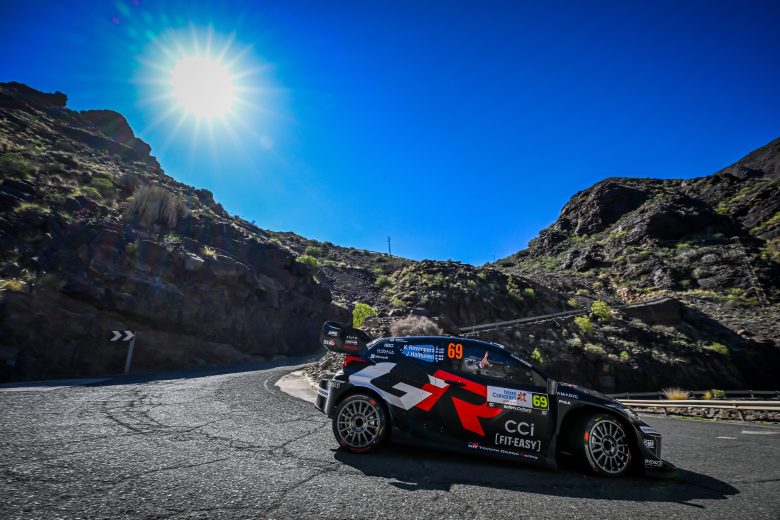
Had he lost his mojo? Were his title hopes already hanging by a thread? Would Rovanperä ever get on top of the Hankook tires?
Rally Islas Canarias provided three emphatic answers: no, no and yes.
From start to finish, the Finn was imperious last week. Fastest on 15 of the event’s 18 special stages (and two of the others were superspecials), victory looked inevitable even as early as Friday morning, when Rovanperä managed to pull out a 17.8s lead.
In the words of Sébastien Ogier: “One man was just flying and killing everybody.”
Whatever you make of Rovanperä’s off-beat start to 2025, the Canaries quite clearly marked a return to his very best form. He wasn’t just in a league of his own, but another category altogether.
A full house of 35 points, and suddenly that championship challenge is not looking as desperate. Let’s see if it continues in Portugal.
Hyundai was doomed to fail
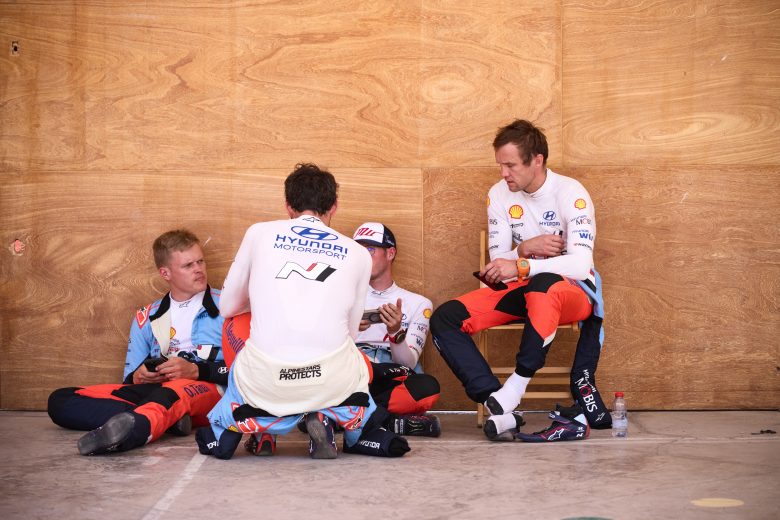
Oh to have been a fly on the wall in the engineers’ debrief.
Clearly, Hyundai did not travel to round four in pursuit of the result it got. If fifth place being the headline result wasn’t bad enough, it was comprehensively beaten by four Toyota GR Yaris Rally1s.
Where Toyota got it right, Hyundai simply got it wrong – and the frustrating thing for the drivers is they were quite literally locked in. Whatever they tried, they knew they were essentially doomed to fail.
“In the test we couldn’t test all the options, so I drove with what we knew from Monte Carlo and other Tarmac events which worked,” Neuville remarked. “You can’t test everything.”
Fourmaux fared better than his team-mates, running the softest differential and gearbox available – but even then he was still giving up time to the Toyotas.
A puncture for Neuville on the penultimate stage was clearly costly for him too, but tellingly his tone never wavered. This was just the latest setback in a bad weekend.
After yet another Toyota win (four from four) as it boosted its manufacturers’ title lead up to 51 points, the only silver lining for Hyundai is the conditions of Canaries should not be repeated later in the season.
M-Sport struggled too
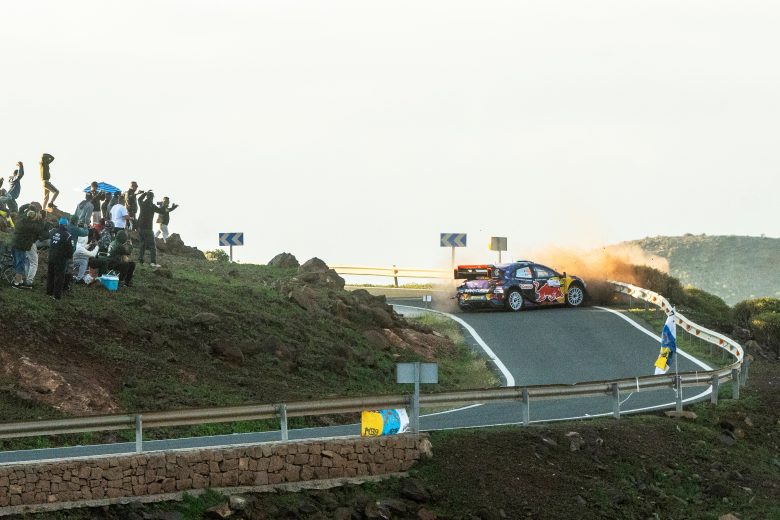
Despite its inexperienced lineup, 2025 has offered plenty of promise for M-Sport. Grégoire Munster delivered his first career stage win in Monte Carlo, and grabbed another in Kenya – with team-mate Josh McErlean tucked right behind in second on that test.
But Islas Canarias was really not an event fit for the highlight reel.
From the get-go, Munster was clear the team was at a disadvantage with its two-car entry for a brand-new rally – particularly compared to Toyota which was running five cars and therefore had five test days.
Either way, the Puma Rally1 never troubled the top of the timesheets in Gran Canaria – understeer the problem afflicting both drivers.
They clubbed together to try different setup solutions – Munster admitting to taking a “gamble” on Saturday before he ultimately made a mistake, carrying too much speed into an acute right-hander and sliding off, losing three minutes in the process.
M-Sport’s Puma didn’t fare particularly well the last time the WRC headed for Spain and a ‘pure’, dry Tarmac rally either – the particular problem this year being making the tire work underneath it.
“I think that if a stage is 20km, we are doing 21 just by going a bit wider in each corner,” Munster surmised. “You know you can do more but the car cannot handle it.”
His off, caused he said by trying different things with the setup, and then McErlean’s crash out on Sunday morning rubbed further salt into the wounds.
There wasn’t even any solace from WRC2 as Romet Jürgenson put his Fiesta off on the very first stage – that after an engine change was required prior to the rally.
Pajari shows something different
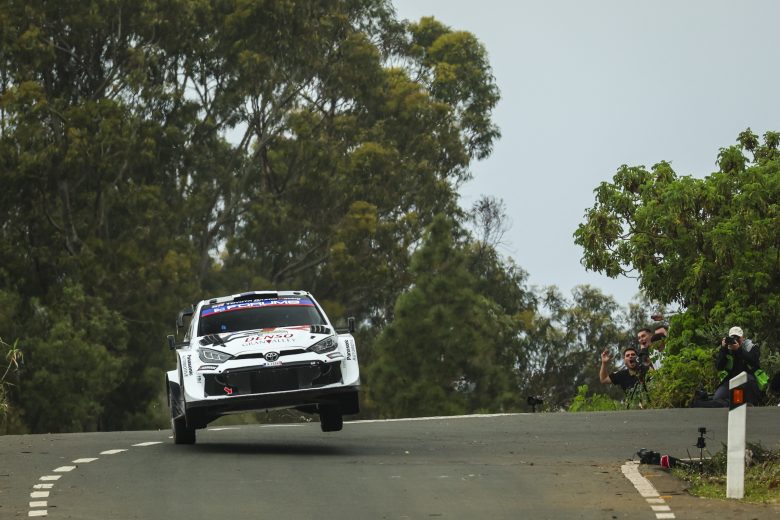
Sami Pajari’s debut season at the top level has been mixed up to now: off the road at Monte, puncture after smacking a bank in Sweden but a fighting fourth in Kenya.
The one thing that perhaps hadn’t been proved (although it was at times last year) was his raw speed.
In Canaries he managed to show it, but he ended up off the road.
Clearly that’s not ideal – Toyota could’ve equaled Lancia’s record from Rally Portugal 1990 in achieving a 1-2-3-4-5 finish had he not run wide and crashed into the Armco barrier.
But given this year is realistically only about learning, the overwhelming positive is Pajari was setting strong stage times and beating the more experienced Takamoto Katsuta on merit.
As Juha Kankkunen surmised: “Things like that happen. But he’s very talented, a good boy.”
Canaries passed the test
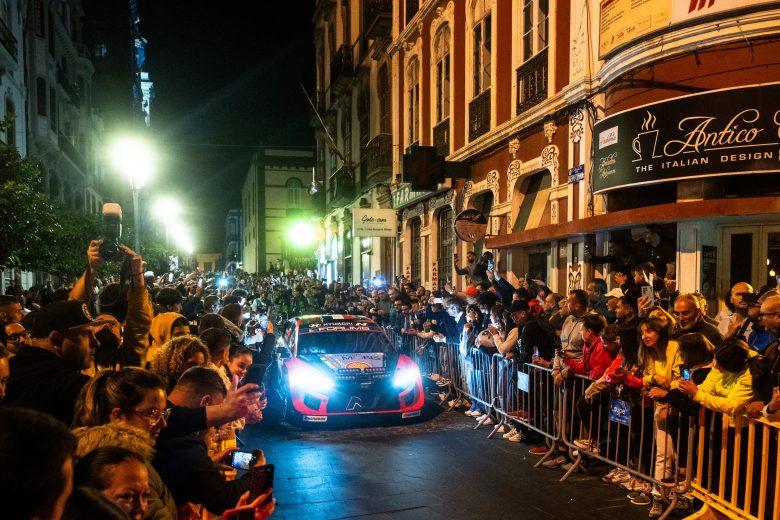
Any rally joining the WRC calendar for the first time will always come under a degree of scrutiny. But Rally Islas Canarias passed with flying colors.
Perhaps the biggest concern was spectator control and behavior. Plenty were expected and plenty arrived, but there were next-to-no issues all rally long – something that did not go unnoticed by the most decorated driver on the entry.
“The spectators have behaved,” said Sébastien Ogier. “There was a little bit of fear that maybe with not so much access [to stages], it will be difficult to control, but I think all stages were running on time with a good atmosphere and I think a lot of people.
“So thank you for the support.”
Rovanperä’s dominance dampened the spectacle a touch, but the energy on the ground around the service park, in the stages and even on the road sections was buzzing.
Fans make atmosphere, and on that score it cannot be argued that Canaries disappointed.
“Spain has always been an important event in the WRC calendar, when it was still based in Salou, and it’s good to be back in Spain,” concluded world champion Neuville.
“I like the roads and the profile, and especially here in Gran Canaria the stages are really interesting and I think everybody loves them.”





